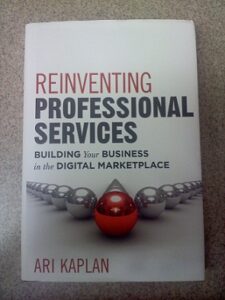Law school is atrociously expensive. Not only is tuition expensive, you still have to pay for your rent, utilities, books, supplies, and your living expenses. Besides only buying things when they are on sale, having roommates, and keeping your apartment a few degrees colder in the winter, I want to share my top 3 tip money saving tips.
1. Used Books
When I started law school, I thought it was important to have pristine books so I wouldn’t be distracted by a previous owner’s marks. With new books, I could highlight them using my own 6-color system and fill the margins with my own notes. I also thought I’d keep these books forever because they were a resource for my new career.
After one semester of believing that, I switched to used books. They were so much cheaper, and other people’s highlights and notes weren’t distracting at all. If anything, they enhanced my reading experience. I sought out books that had more highlighting and dings because they were cheaper.
One time, I was looking at the listings on Amazon for a particular used text book. One was $40 cheaper than all the others because the owner accidentally spilled coffee on the book. I bought it. The coffee was only on the first page and the edge of the subsequent pages. It didn’t even touch any of the text. Thanks clumsy guy!
At the end of every semester I turned around and resold as many books as I could on Amazon, including my study guides. The only downside to this system is a lot of books have new editions every year so you have a small window in which to sell your used ones.

2. Free Lunch
My law school had lots of lunch time events and networking functions. Usually my first question wasn’t, “What’s the topic?,†but “What’s for lunch?†It was a win-win situation. The club got a big turnout for their speaker, and I got a free lunch. Even better, sometimes clubs would order too much food and at the end, they were giving the leftovers away to anyone, including non-attendees.
Another way to get free lunch is to network. Most attorneys understand that law students are poor and will pick up the check. For many of them, it’s a business write-off. However, you should always offer and be willing to pay, and you should only ask an attorney to lunch if you’re genuinely interested in getting to know them. The free lunch is a bonus, not the goal.
3. Free/Cheap Parking
I think parking on campus is one of the biggest rip offs of education.  My school has a big parking structure that is a 5-minute walk away from the law school. Parking there costs $720/year. Do you know how much ramen I can buy for $720?! There’s a campus parking lot that’s only 5-10 minutes further away. A permit for the lot costs $210/year. This is where I parked my first year.
When I was in school, students could get a light rail pass for the whole year for $80. For my last two years of law school, I opted for this. I parked for free at the park and ride, rode 5-15 minutes into campus, and walked for 5 minutes from the station to the law school. If I needed my car on campus, I paid the $8/day for visitor parking. At the end of the year, it was cheaper than buying a parking pass.
The super frugal student can park on the street for free. The only issue is they have to get there early in the morning when space is still available or possibly the afternoon after the morning students have left. Sometimes you have to be willing to drive around looking for a space.
These are just my top 3 money saving tips. There are plenty of other ways to save money while going to school. If you want to share your tips, please leave them as comments. I’d love to hear them.
Related articles
- 5 Ways to Save Money as a College Student (moneyning.com)






